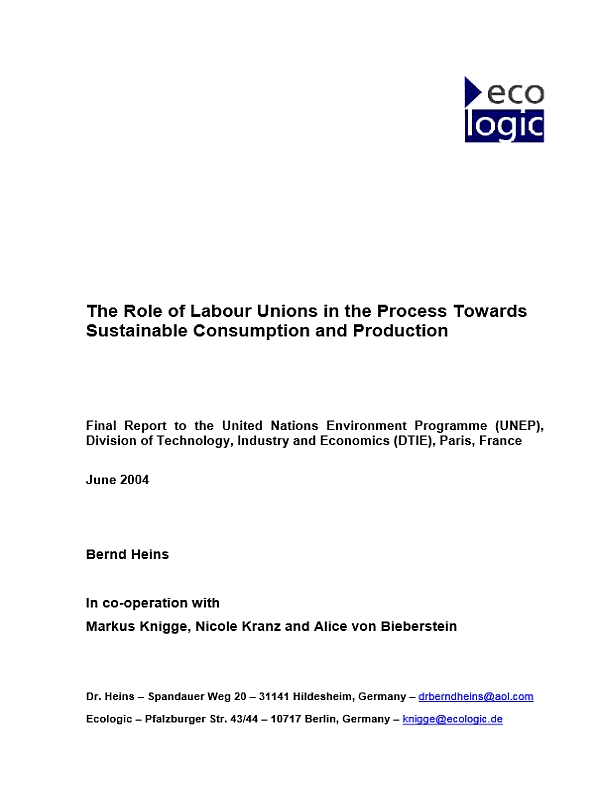The Role of Labour Unions in Sustainable Consumption and Production
- Project
- Duration
-
-
Labour unions have a significant impact on consumption and production patterns. By means of case studies from Germany, Great Britain, the USA, South Africa and Indonesia, Ecologic examines the current attitude of unions towards sustainable consumption and production patterns. The final report identifies labour unions' potential future contribution to advancing sustainable development and ways to further strengthen their involvement in the respective national and international governance processes.
Background:
Labour unions are considered an important actor in the process towards more sustainable consumption and production patterns. They offer an organisational platform for many workers and are involved in numerous policy processes. However, labour unions have traditionally focused their attention on job security and maintenance, as well as work place issues. Conversely, environmental concerns and sustainable development are usually not high on the political agenda of labour unions.
Study:
Commissioned by UNEP DTIE, Ecologic and Dr. Bernd Heins analysed how labour unions are currently contributing to sustainable consumption and production patterns. To this end, a number of case studies in Germany, the United Kingdom, South Africa, USA and Indonesia were investigated. Also, a closer look was taken at the potential role labour unions might play in the future and how labour unions could increase their contribution in the process towards more sustainable consumption and production patterns.
Results:
Labour unions are in a key position for advancing current developments in the area of sustainable consumption and production. They are organised in unique networks, incorporate global and local knowledge and expertise, and are influential actors. While labour unions recently became more active in regard to sustainable development, there is still great potential for additional action. In particular, labour unions should consider developing their own sustainable development strategies, collecting best practice examples on the local and national level and participating more proactively in national and international policy processes.
Download:
Study [pdf, 303 KB, English]




